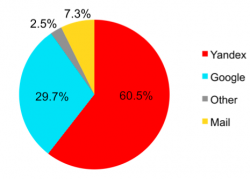AbigBiz > Trade Study > ArticleTrade Study
No Japanese in a Nissan Factory
![]() ABigBizApr14, 2020【Trade Study】
℃
Leave a Reply
ABigBizApr14, 2020【Trade Study】
℃
Leave a Reply
China is the largest market for new cars, and motor corporations over the world have competed for this market fiercely. In order to make a rapid expansion of their market they start to increase their production in China.
It is reported that Nissan decided to build a "no Japanese factory", a new factory in Dalian constructed by Dongfeng Nissan. The contraction will be started in October and now it is in preparation. The new factory will cover an area of 1.27 million square meters facing the Port of Dalian. The factory is carefully checking the quality of all the construction processes including welding, coating, installing etc. in order to establish the production system that they could produce 150 thousand cars per year.
After the test run the factory will be operated by 2000 Chinese workers and the Japanese employees will come to the Dalian factory on a business trip from Japan and Huadu.
In correspondence to the moving in of Nissan, about ten Japanese and thirty Chinese suppliers have moved in Dalian, and they are all making pressing preparation so as to start the operation by the end of the year.
Song Shunbo, the vice director of administration committee of automobiles in Dalian, said that the moving in of Nissan was expected to create about 15 thousand jobs, which would be the contribution of Nissan to Dalian.
Nissan takes the factory in Dalian as the manufacturing base of SUV which is popular in the Chinese market. And it will produce X-Trail and qashqai in this factory which are to be sold in China.
At present Nissan expects to produce 150 thousand cars, and depending on the sales status it will expand the factory with a goal of increasing the annual output to 300 thousand.
The sales of Nissan in China in December 2013, compared to that in the same time of the preceding year, had increased by 70% and reached 134.2 thousand, which recovered to the level before the anti-Japanese protests. The competition in the Chinese market is fierce, and the market would probably be grabbed by others if it fails to boost the yield of popular cars.
In the macro environment of Chinese market, Nissan's strategy is to reduce the cost by entire localization and to sell all the products with China. This could be the mode that helps Japanese companies survive in China when the situation is bad for them.
The general manager of Dongfeng Nissan Susumu Uchikoshi said,"In order to survive in China, we need to make not only prompt judgment but also tight communication with managers and workers." So the company made the decision of "no Japanese". Besides, Nissan believed that if the factory was operated by Chinese the work efficiency would be improved and they could grasp every opportunity. Chinese managers could make a decision within one day, but if the managers are Japanese, they would have to report to the parent company first and the decision would not be made until all the departments make careful research and study. It could take a few weeks or even months.
Many transnational enterprises gradually realize that only when the core business is handled by Chinese employees can they expand the business. In order to expand the China, the huge market with 1.3 billion consumers, Japanese companies still have to endeavor.
It is reported that Nissan decided to build a "no Japanese factory", a new factory in Dalian constructed by Dongfeng Nissan. The contraction will be started in October and now it is in preparation. The new factory will cover an area of 1.27 million square meters facing the Port of Dalian. The factory is carefully checking the quality of all the construction processes including welding, coating, installing etc. in order to establish the production system that they could produce 150 thousand cars per year.
After the test run the factory will be operated by 2000 Chinese workers and the Japanese employees will come to the Dalian factory on a business trip from Japan and Huadu.
In correspondence to the moving in of Nissan, about ten Japanese and thirty Chinese suppliers have moved in Dalian, and they are all making pressing preparation so as to start the operation by the end of the year.
Song Shunbo, the vice director of administration committee of automobiles in Dalian, said that the moving in of Nissan was expected to create about 15 thousand jobs, which would be the contribution of Nissan to Dalian.
Nissan takes the factory in Dalian as the manufacturing base of SUV which is popular in the Chinese market. And it will produce X-Trail and qashqai in this factory which are to be sold in China.
At present Nissan expects to produce 150 thousand cars, and depending on the sales status it will expand the factory with a goal of increasing the annual output to 300 thousand.
The sales of Nissan in China in December 2013, compared to that in the same time of the preceding year, had increased by 70% and reached 134.2 thousand, which recovered to the level before the anti-Japanese protests. The competition in the Chinese market is fierce, and the market would probably be grabbed by others if it fails to boost the yield of popular cars.
In the macro environment of Chinese market, Nissan's strategy is to reduce the cost by entire localization and to sell all the products with China. This could be the mode that helps Japanese companies survive in China when the situation is bad for them.
The general manager of Dongfeng Nissan Susumu Uchikoshi said,"In order to survive in China, we need to make not only prompt judgment but also tight communication with managers and workers." So the company made the decision of "no Japanese". Besides, Nissan believed that if the factory was operated by Chinese the work efficiency would be improved and they could grasp every opportunity. Chinese managers could make a decision within one day, but if the managers are Japanese, they would have to report to the parent company first and the decision would not be made until all the departments make careful research and study. It could take a few weeks or even months.
Many transnational enterprises gradually realize that only when the core business is handled by Chinese employees can they expand the business. In order to expand the China, the huge market with 1.3 billion consumers, Japanese companies still have to endeavor.
- END -
Finished browsing? You can ask me to comment and Leave a Reply!
Leave a Reply!
Other articles
- Ebola Virus Reduces Import of Bauxite
- How to Know Your Product?
- 6 reasons why every time B2B and B2C
- How to select B2B industry site Management System
- The bright future of trading
- Foreigners Understand Jay Chou's Song?
- The Excruciating Oversea Locations
- An award winning B2B vision 2015
- Key points of being a successful salesman
- Analysis of Australian Market
Related news
The strategy for the B2B website keywords SEO
About keyword strategy of the complexity and than a few areas and b2b e-commerce ...Notes of doing business with Indian
Notes of doing business with Indian According to customs statistics, our main pro...How to Improve your Export Ability
Export Ability Product is the keypoint of foreign trade . From the ancient to now...The bright future of trading
In 15th July, the Commerce Department held a pre-match press conference to announ...
Leave a Reply
- 全部评论(0)

说点什么吧
还没有评论,快来抢沙发吧!
Popular this month
 The best communication time
The best communication timeRecommended

As for the foreign trader, we usually need to negotiate and communicate with the ...

Russian market has been a big chance for foreign trade salesmen because in recent...

Hello everyone! Today I would like to introduce some useful and daily apps in Ind...

As we all know, the hot products play an important part in the development of a s...
Tags
You love
- 10 Sentences That Will Make You Smile
- How to Maintain Your Old Customers?
- Tips for Final Fighting in 2016
- How to Write Claim Letters
- I Was Just the Tool
- What Are You Going to Ask
- Analysis Helps You Win Order!
- What's Wrong With Your Quotation?
- African nations may be the new Brics
- Unfathomable Foreign Trade





 微信扫码打赏
微信扫码打赏 支付宝收款码
支付宝收款码